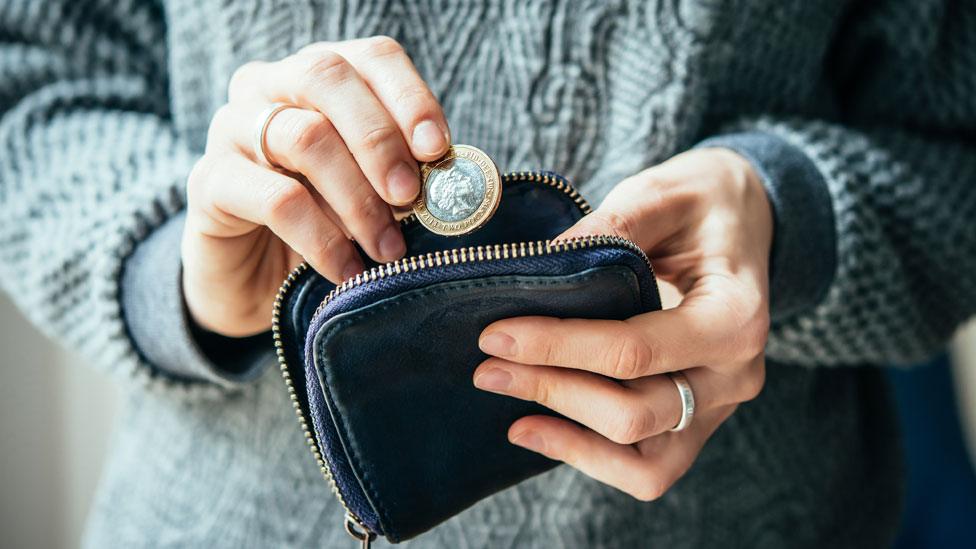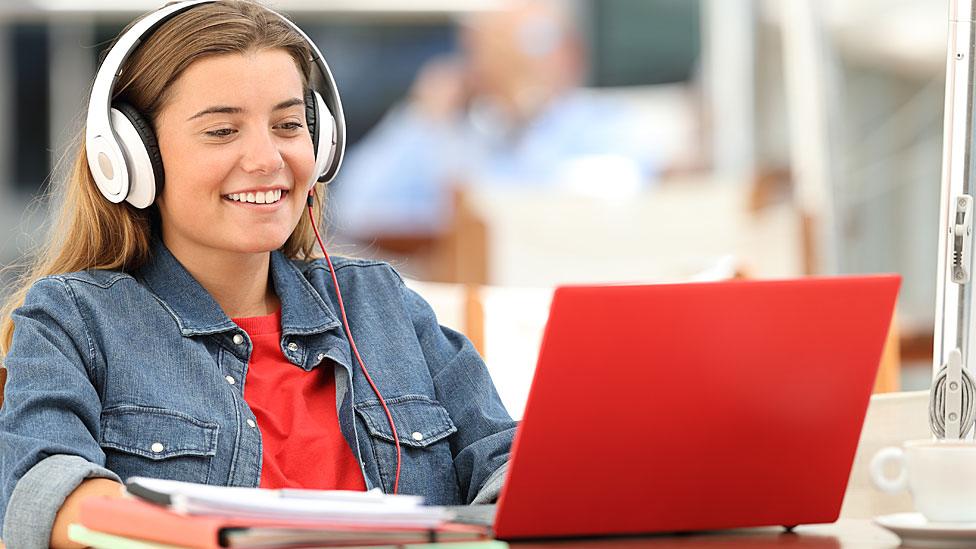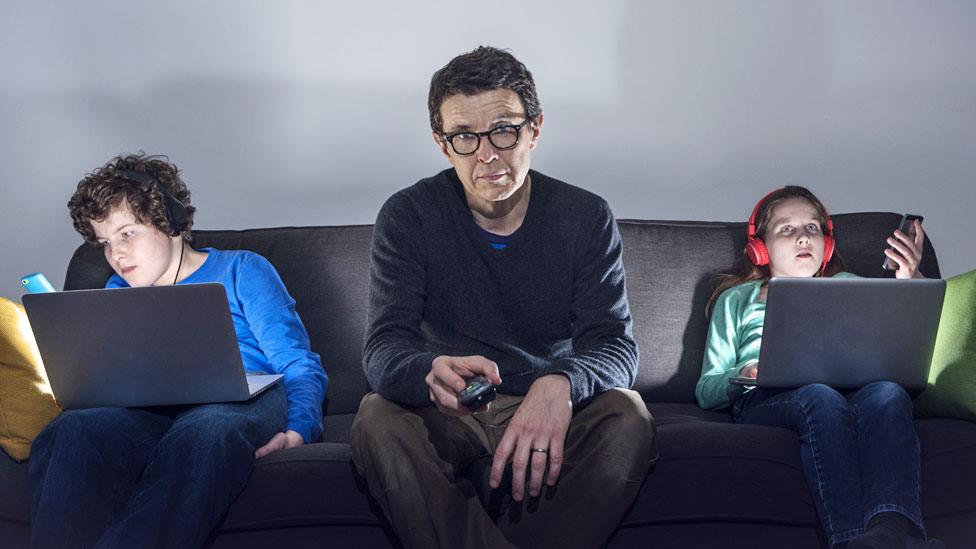'Digital poverty' in schools where few have laptops
- Published

Not all families have laptops and broadband to help their children keep learning at home
"In our schools, 60% to 70% of children wouldn't have laptops," says Wayne Norrie, head of an academy trust with schools in disadvantaged areas.
With schools closed and pupils studying online at home, he says, it is important to recognise the social gap in access to technology.
"Coronavirus has revealed the scale of the digital divide," he says.
The Department for Education in England has promised laptops will be lent to some poorer teenagers.
These will be available to disadvantaged Year 10 pupils without access to a computer, and those with social workers.
The scheme, announced last Sunday, for un unspecified number of laptops, is expected to soon start taking bids from local authorities and academy trusts.
Mr Norrie, chief executive of Greenwood Academies Trust, with 37 schools in the Midlands and east of England, says many families rely on a single mobile phone for an internet connection, which is "not realistic" for online learning and streaming video lessons.
"Many don't have broadband contracts," he says.
For instance, he describes a family in Skegness who have a mobile phone shared between parents and three children.
The schools have been providing laptops and some families have their own tablet computers - but there are still barriers in terms of parents' IT skills and children having space to study.

The Department for Education is promising to lend laptops to some teenagers
"Digital poverty" is a significant problem, says Matt Morden, co-head teacher of Surrey Square primary school, in south London.
In his school, 24% of pupils are effectively offline, in terms of being able to study from home.
Their families might have mobile phones with internet connections - but for those in low-paid, insecure jobs, data is expensive.
"If families are struggling, the priority is going to be food, not data," he says.
As well as missing out on learning, those without online connections miss "the sense of belonging" from staying in touch with their friends and teachers, Mr Morden says.
The lockdown and the closure of schools has "brought the digital divide to the forefront", he says.

There are digital haves and have-nots in the coronavirus lockdown
There has been a new virtual academy launched and the BBC has provided educational resources - but those without internet access or usable computer devices are being left behind.
Mr Morden's school has been lending laptops - but for families with several school-age children, one might not be enough.
Seb Chapleau, director of the Big Education Conversation charity, says it is "important to understand that this is a deep problem across many schools".

A SIMPLE GUIDE: How do I protect myself?
AVOIDING CONTACT: The rules on self-isolation and exercise
HOPE AND LOSS: Your coronavirus stories
LOOK-UP TOOL: Check cases in your area
VIDEO: The 20-second hand wash

The Co-op Academies Trust is providing 1,000 computer devices across its 24 schools.
Chris Tomlinson, who chairs the trust, says online lessons are "no good if the children don't have the necessary hardware to access the internet".
The AET academy trust is providing 9,000 laptops for its 58 schools, one for all pupils on free school meals.
The current lockdown has turned technology into an educational necessity rather than a luxury, said the trust's chief executive, Julian Drinkall
Robert Halfon, chair of the education select committee, says too often there are assumptions about access to broadband and up-to-date computers.
As an MP, he says he deals with constituents who have to weigh up the cost of data before sending emails or getting information online.
He suggests educational programmes could be put on free-to-air television to reach those not online.
- Published19 April 2020
